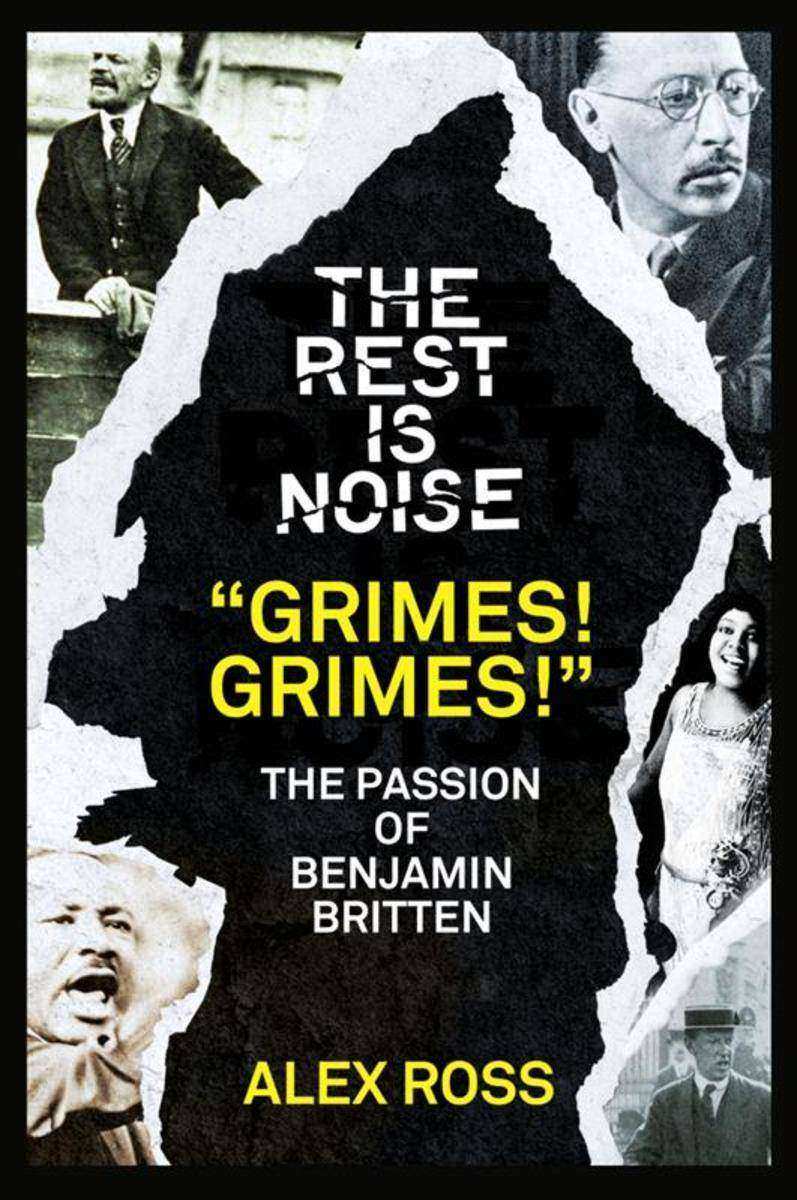
The Rest Is Noise Series: “Grimes! Grimes!”
¥11.77
This is a chapter from Alex Ross’s groundbreaking history of twentieth-century classical music, ‘The Rest is Noise’. Further extracts are available as digital shorts, accompanying the London Southbank festival programme. Benjamin Britten lived for most of his life around the Suffolk coast, and is buried in the Aldeburgh churchyard. He once stated that all his music came from there. ‘Peter Grimes’ is an opera of staggering force that is soaked in Aldeburgh to its bones. Now a major festival running throughout 2013 at London’s Southbank, The Rest is Noise is an intricate commentary not just on the sounds that defined the century, but on art’s troublesome dance with politics, social and cultural change. Britten’s music features prominently in the festival; ‘Music from Across the Iron Curtain’ is on 27 September 2013, ‘Britten Centenary Celebrations’ are on 2 and 12 October and ‘The Young Person’s Guide to the Orchestra’ is performed on 3 November 2013. Alex Ross is the New Yorker’s music critic, and the winner of the Guardian First Book Award and the National Book Critics Circle Award for The Rest is Noise, which was also shortlisted for the Samuel Johnson and Pulitzer prizes for non-fiction.
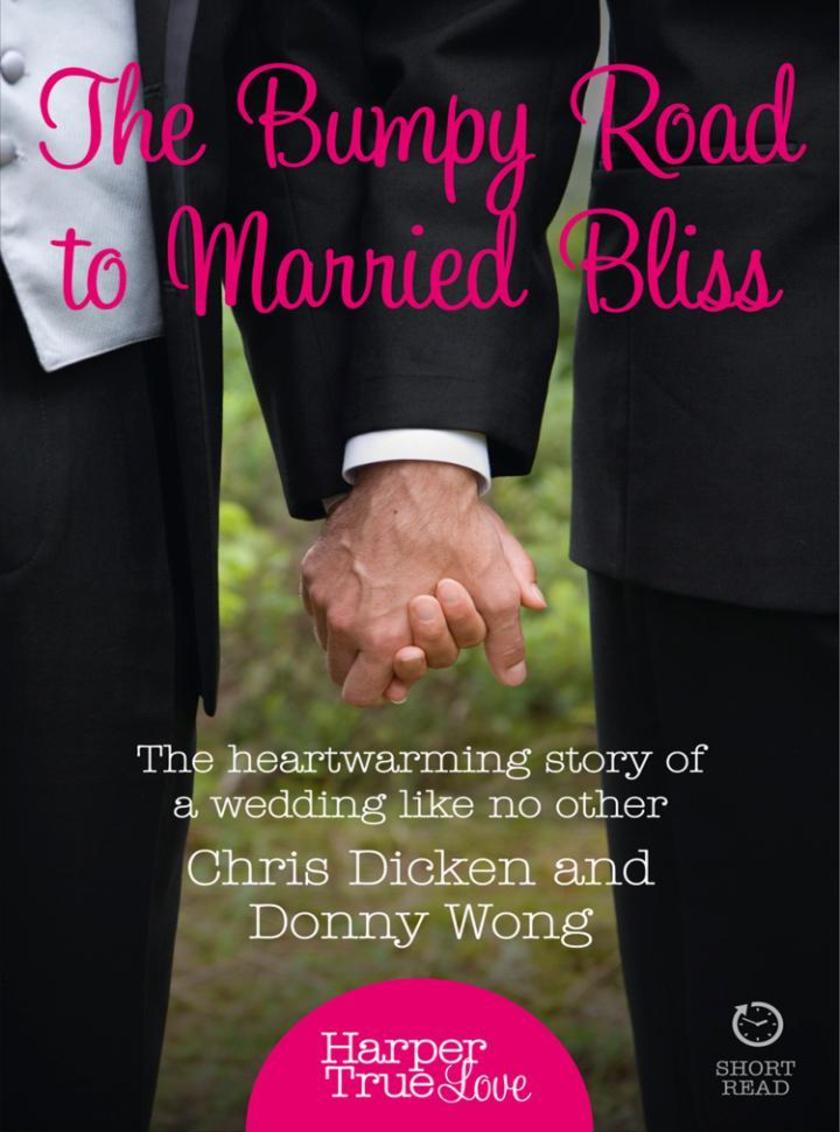
The Bumpy Road to Married Bliss (HarperTrue Love – A Short Read)
¥11.77
In August 2012, Donny and Chris found themselves outside Islington Town Hall preparing to start the next chapter of their lives together. But from meeting on an Isle of Wight cliff top, to getting engaged in Thailand, and finally tying the knot in London, it was one hell of a journey that had taken them there… The Bumpy Road to Married Bliss follows the many funny and touching twists and turns of Donny and Chris’s journey towards their wedding day; from being born on different continents, to organising a multi-faith, trans-Atlantic, inter-racial wedding with disapproving families in tow – proving that the course of true love really doesn’t run smooth. Tender, honest and told from both Donny and Chris’s points of view in alternating chapters, this is a modern day love story you won’t be able to put down.
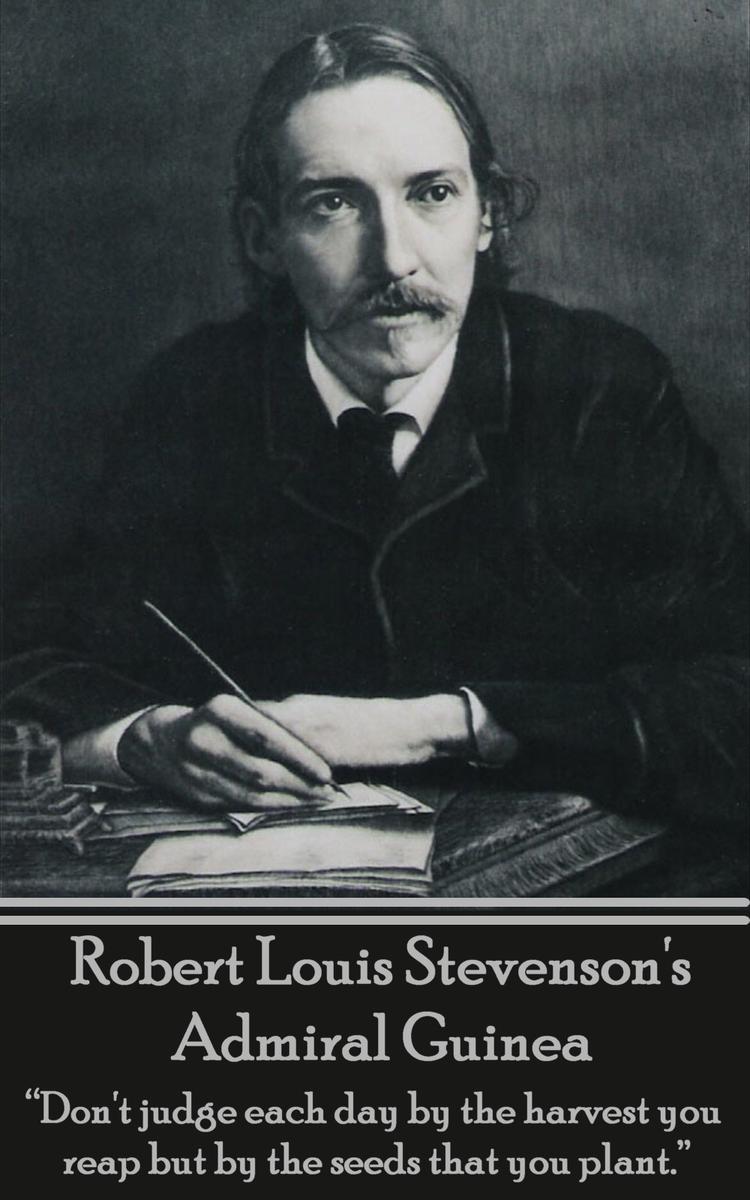
Admiral Guinea - Don't judge each day by the harvest you reap but by the seeds t
¥11.87
Robert Louis Stevenson. In the Scottish canon to be placed alongside Burns for your poems is high praise indeed but it's a rightful place for one of Scotland's finest novelists. Born in 1850 he managed to cram much into his 44 years travelling widely to France, the United States, Samoa and the South Seas. Of course he is widely feted for his classics Dr Jeckyll & Mr Hyde, Treasure Island and poetry volumes such as A Child's Garden Of Verses and short storeis such The Body Snatchers. All offer compelling examples of narration superbly reduced to their essence. This volume 'Admiral Guinea' is another distinctive facet to his works. And yes, superbly written.
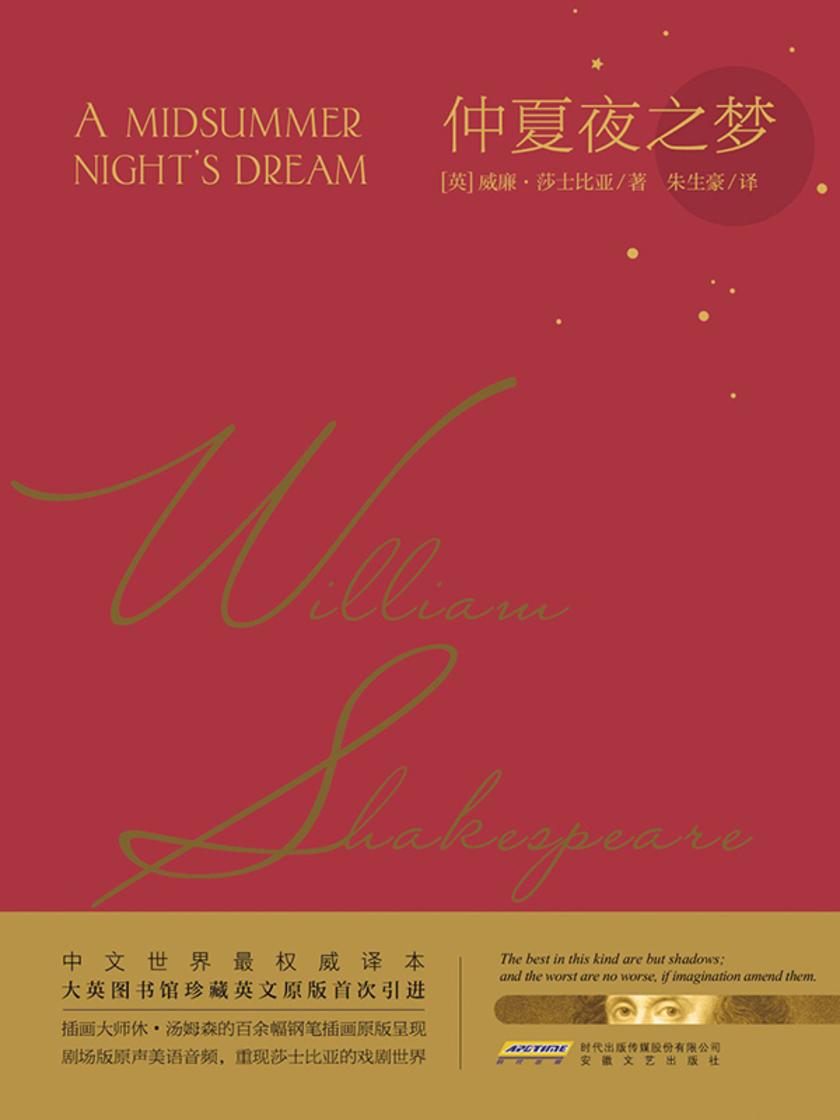
莎士比亚戏剧典藏:仲夏夜之梦
¥11.99
《仲夏夜之梦》是威廉•莎士比亚创作的一部富有浪漫色彩的喜剧作品。故事发生在古希腊的雅典,年轻的赫米娅与拉山德相爱,可是赫米娅的父亲却希望她嫁给狄米特律斯,为此赫米娅与拉山德逃到城外的一片森林里。此时,为了给雅典公爵提修斯和美丽的希波吕妲的盛大婚礼助兴,一群演员也在森株里排练一出喜剧。仙王还无意中得知海伦娜爱着狄米特律斯,就让浦克将一些花汁滴在狄米特律斯的眼里。这种花汁,拿来滴在他的眼睛里,那么他醒来就会狂热地爱上第1眼看到的人或动物。结果,拉山德醒来看到的是海伦娜,便不停地向她求爱,而把赫米娅忘掉了。仙王发现后。赶忙把花汁滴正在熟睡的狄米特律斯的眼中。狄米特律斯醒来,看到正被拉山德追赶的海伦娜,于是两人争先恐后地向海伦娜求爱。看到这样的情景,海伦娜和赫米娅都很生气。与此同时,仙后也中了计,爱上了一个排戏的演员波顿。*后,仙王给所有人解除了魔法,大家如愿以偿都得到了属于自己的一份爱情。
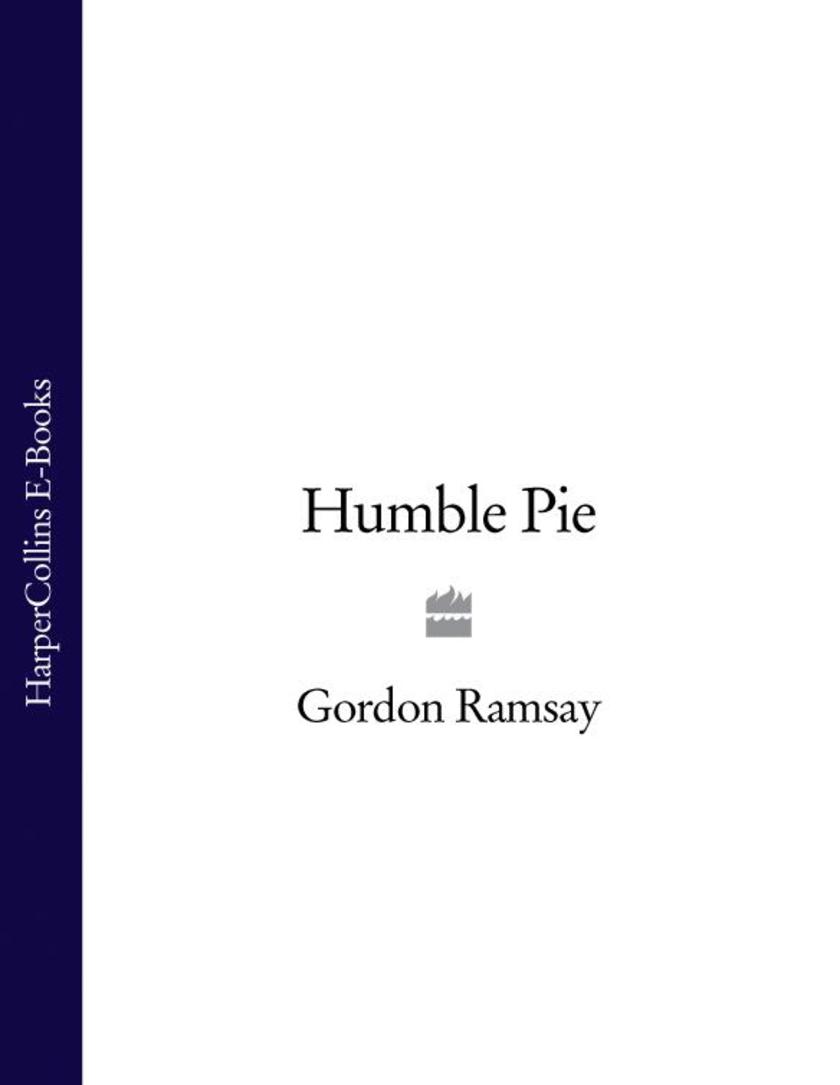
Humble Pie
¥12.56
Everyone thinks they know the real Gordon Ramsay: rude, loud, driven, stubborn. But this is his real story… In this fast-paced, bite-sized edition of his bestselling autobiography Ramsay tells the real story of how he became the world’s most famous and infamous chef: his difficult childhood, his brother’s heroin addiction, his failed first career as a footballer, his fanatical pursuit of gastronomic perfection and his TV persona - all the things that have made him the celebrated culinary talent and media powerhouse that he is today. Gordon talks frankly about: ? his tough childhood: his father’s alcoholism and violence and the effects on his relationships with his mother and siblings ? his first career as a footballer: how the whole family moved to Scotland when he was signed by Glasgow Rangers at the age of fifteen, and how he coped when his career was over due to injury just three years later ? his brother’s heroin addiction. ? Gordon’s early career: learning his trade in Paris and London; how his career developed from there: his time in Paris under Albert Roux and his seven Michelin-starred restaurants. ? kitchen life: Gordon spills the beans about life behind the kitchen door, and how a restaurant kitchen is run in Anthony Bourdain-style. ? and how he copes with the impact of fame on himself and his family: his television career, the rapacious tabloids, and his own drive for success.
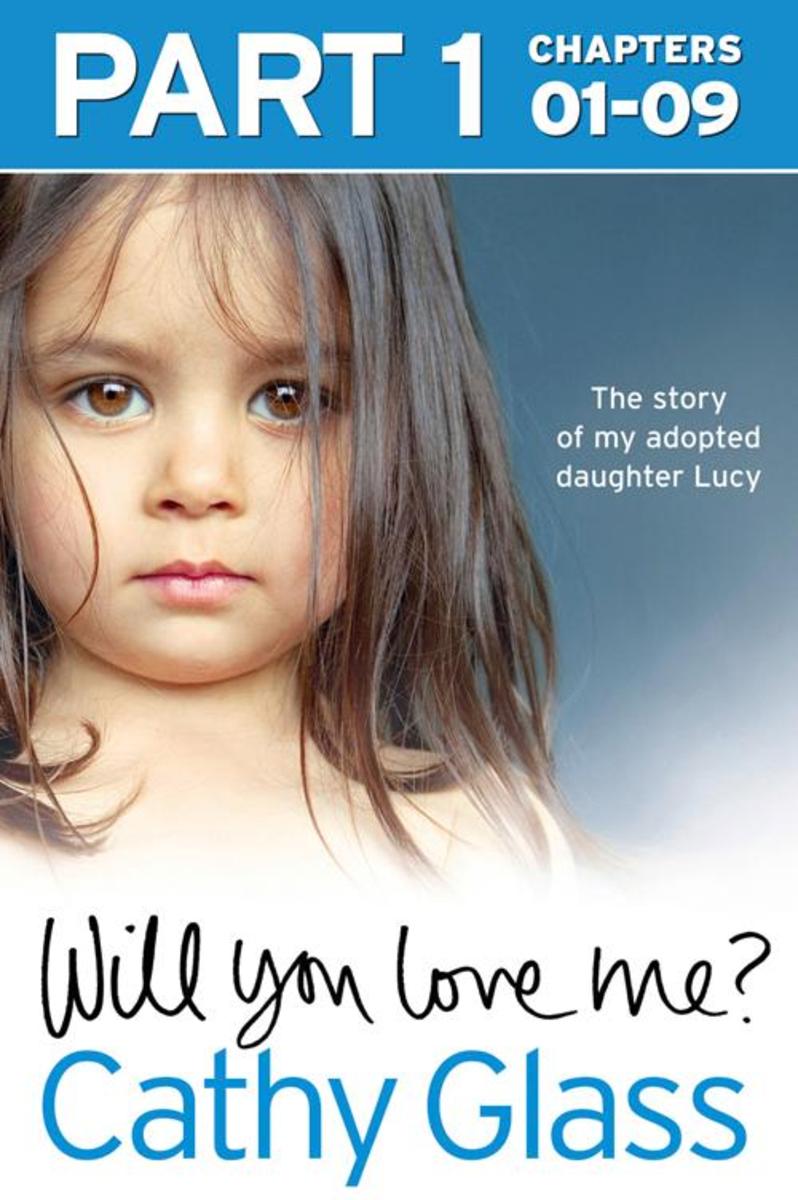
Will You Love Me?: The story of my adopted daughter Lucy: Part 1 of 3
¥12.85
Will You Love Me can either be read as a full-length eBook or in 3 serialised eBook-only parts. This is PART 1 of 3 (Chapters 1-9 of 27). You can read Part 1 two weeks ahead of release of the full-length eBook and paperback. The eleventh memoir and latest title from the internationally bestselling author and foster carer Cathy Glass. This book tells the true story of Cathy’s adopted daughter Lucy. Lucy was born to a single mother who had been abused and neglected for most of her own childhood. Right from the beginning Lucy’s mother couldn’t cope, but it wasn’t until Lucy reached eight years old that she was finally taken into permanent foster care. By the time Lucy is brought to live with Cathy she is eleven years old and severely distressed after being moved from one foster home to another. Withdrawn, refusing to eat and three years behind in her schooling, it is thought that the damage Lucy has suffered is irreversible. But Cathy and her two children bond with Lucy quickly, and break through to Lucy in a way no-one else has been able to, finally showing her the loving home she never believed existed. Cathy and Lucy believe they were always destined to be mother and daughter – it just took them a little while to find each other.

The Military Wives: Wherever You Are – Claire’s Story
¥12.95
This is Claire’s story, one of four individual journeys taken from Wherever You Are by The Military Wives. Claire Balneaves never thought she’d end up as a military wife. But when she met a young medical assistant, Dave Balneaves, at a naval hospital, everything changed. Before long Claire and Dave had tied the knot and moved into married quarters – and Claire began to settle into the unique life of a military wife. Moving from house to house, from country to country, often solitary – in many ways Claire lived as a single mother. When family and medical difficulties cast a cloud over her personal life, Claire had no one to turn to. But from the moment she joined a nascent choir of military wives, that changed: wives with similar stories came together to sing, and there they found solace and strength. They found each other. Mere months later, the Military Wives choir would have met Gareth Malone, performed for the Queen, recorded a bestselling album and achieved a Christmas number 1. This is one woman’s true story of heartbreak and hope, and of how the choir changed the course of her life. Sales of this book will benefit the Military Wives Choirs Foundation, a network of choirs that reaches across the military community to provide support, guidance and funding for individual choirs, but first and foremost to bring women closer together through singing. The Foundation is a registered subsidiary charity of SSAFA Forces Help.
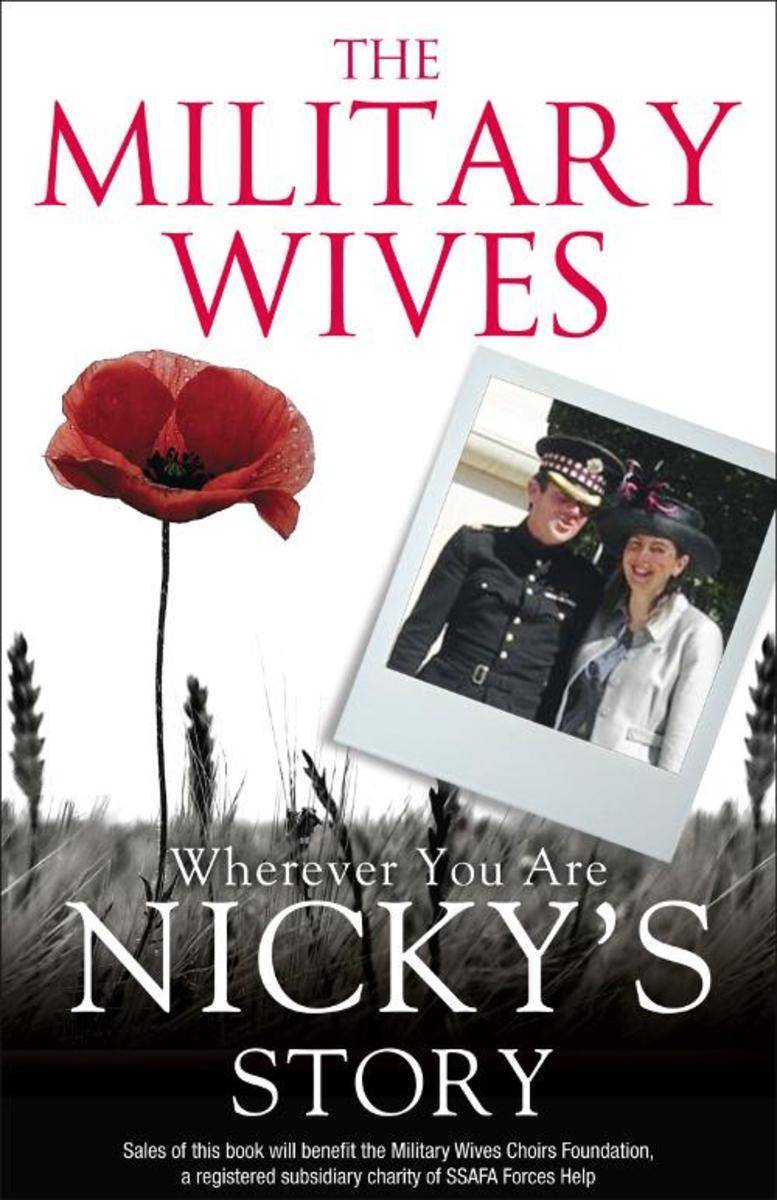
The Military Wives: Wherever You Are – Nicky’s Story
¥12.95
This is Nicky’s story, one of four individual journeys taken from Wherever You Are by The Military Wives. At 33, Nicky Clarke had stopped thinking she would ever fall in love. But they say when you stop looking, love happens – and that was the year she was swept off her feet by Hugo Clarke, a major in the Scots Guards. A year later Hugo and Nicky were married. But life in the military is never calm for long, and the next few years saw Hugo leave for Iraq and Afghanistan for months at a time. In married quarters Nicky met other military wives quickly, but forging friendships proved difficult: the occasional coffee morning just wasn’t enough. Nicky decided that this community needed to be brought together. With the help of a friend and a local choirmistress, Nicky set a time for the local wives to gather and sing. Before she knew it, a family was growing and a support network was formed. The first Military Wives choir was born. Mere months later, the choir would become a nationwide phenomenon. The Wives would go on to perform for the Queen, record a bestselling album and achieve a Christmas number 1. This is one woman’s true story of heartbreak and hope; of how singing changed the course of her life. Sales of this ebook will benefit the Military Wives Choirs Foundation, a network of choirs that reaches across the military community to provide support, guidance and funding for individual choirs, but first and foremost to bring women closer together through singing. The Foundation is a registered subsidiary charity of SSAFA Forces Help.
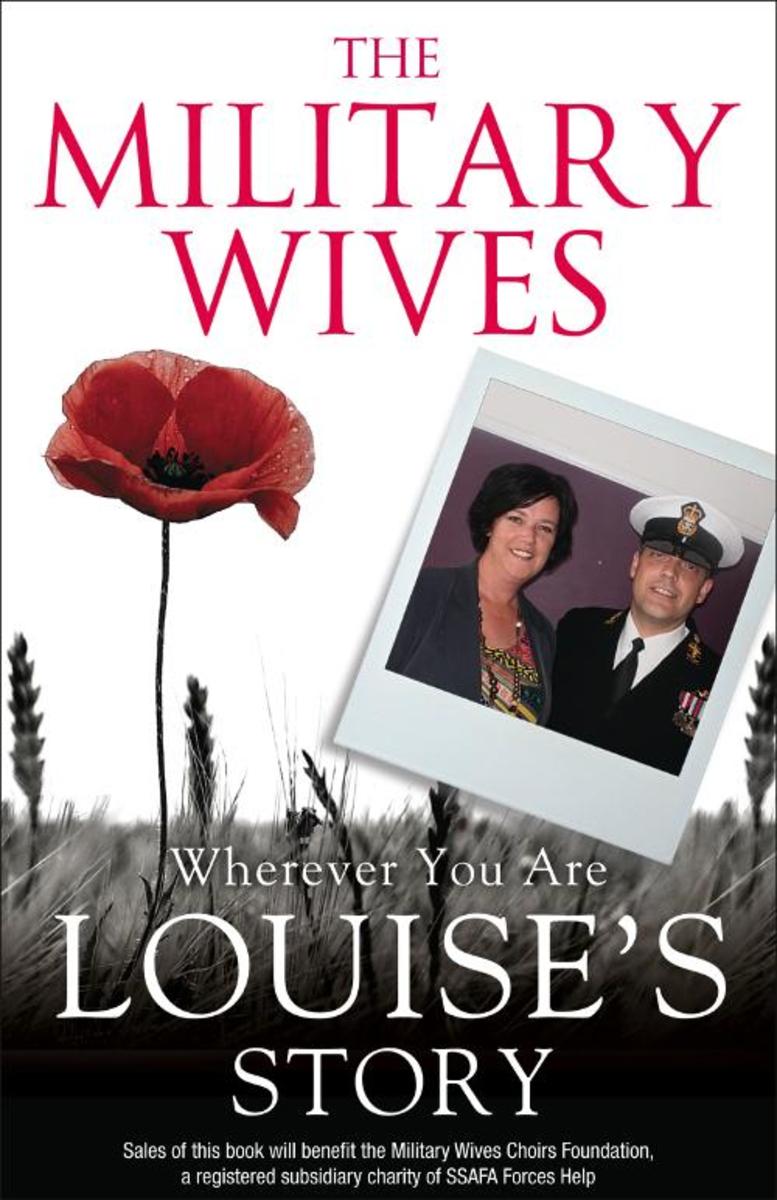
The Military Wives: Wherever You Are – Louise’s Story
¥12.95
This is Louise’s story, one of four individual journeys taken from Wherever You Are by The Military Wives. Louise Baines always said she would never marry into the military. She was working behind a bar when Charlie Baines, a submariner, introduced himself – but within a few months they had moved in together, bought a house, and tied the knot. She knew being married to a submariner was never going to be easy, but with young children and a husband absent for months at a time, away from all forms of communication and risking his life, coping alone was harder than Louise had ever imagined. When she heard that Gareth Malone had started a choir in Plymouth, she thought she’d go along. Surrounded by friends and singing her heart out, Louise was soon aware that this was no ordinary choir… Through the choir, life soon became a whirlwind. Mere months later, they would have met Gareth Malone, performed for the Queen, recorded a bestselling album and achieved a Christmas number 1. But much more than this: Louise had a support network that meant she would never have to cope alone again. This is one woman’s true story of heartbreak and hope, and of how the choir changed everything. Sales of this book will benefit the Military Wives Choirs Foundation, a network of choirs that reaches across the military community to provide support, guidance and funding for individual choirs, but first and foremost to bring women closer together through singing. The Foundation is a registered subsidiary charity of SSAFA Forces Help.
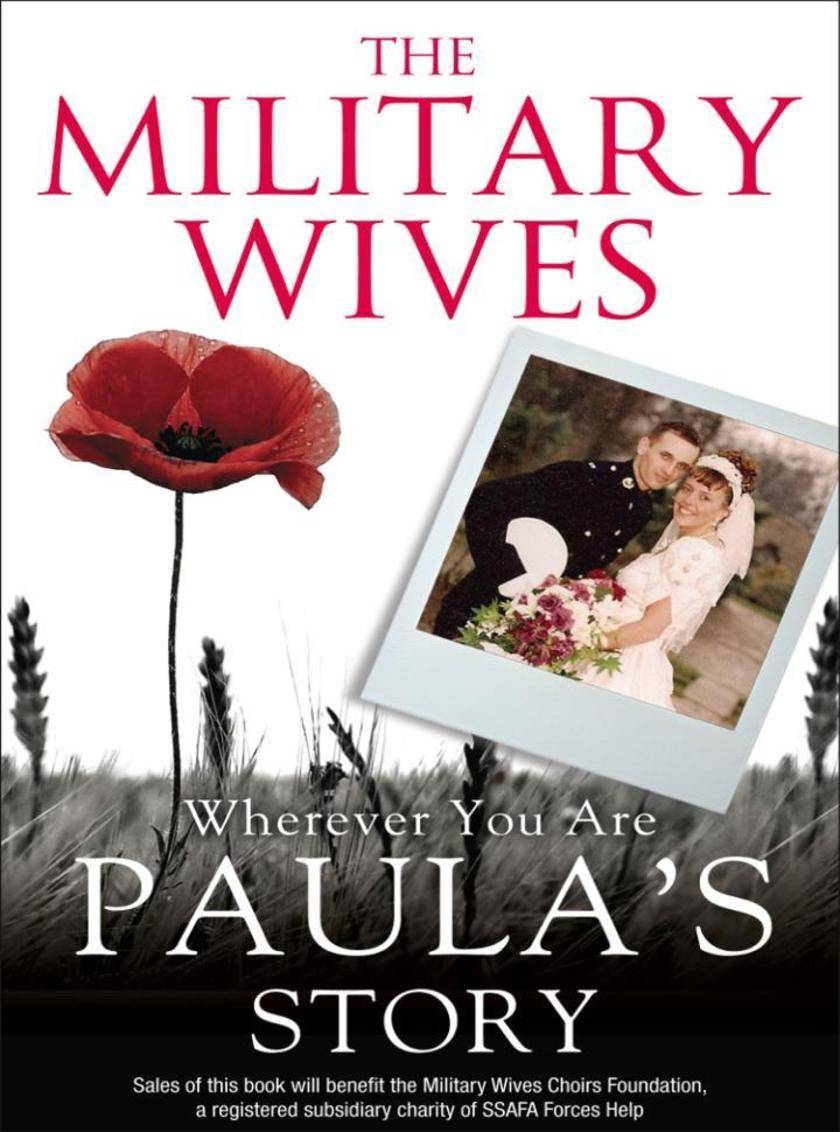
The Military Wives: Wherever You Are – Paula’s Story
¥12.95
This is Paula’s story, one of four individual journeys taken from Wherever You Are by The Military Wives. Paula and James Mundy first met when they were teenagers, little knowing they’d end up spending the rest of their lives together. After James had completed his marine training they met again, became inseparable, and before long had moved into married quarters. But life as a military wife would be particularly hard for Paula. With James posted overseas, she was left to cope with the mental and physical disabilities of their daughter Rhianna, had full responsibility for her elder brother and younger sister, and in 2011 she was left reeling when her mother was diagnosed with cancer. When Paula began singing with her local choir, she realised she had an outlet for the first time; a way to switch off. In the dozens of other wives, each with their own hardships to overcome, she found a support network; through the darkest times, the choir was there. Mere months later, the Military Wives choir would have performed for the Queen, recorded a bestselling album and achieved a Christmas number 1. This is one woman’s true story of heartbreak, love and loss, and of how singing kept hope alive. Sales of this book will benefit the Military Wives Choirs Foundation, a network of choirs that reaches across the military community to provide support, guidance and funding for individual choirs, but first and foremost to bring women closer together through singing. The Foundation is a registered subsidiary charity of SSAFA Forces Help.
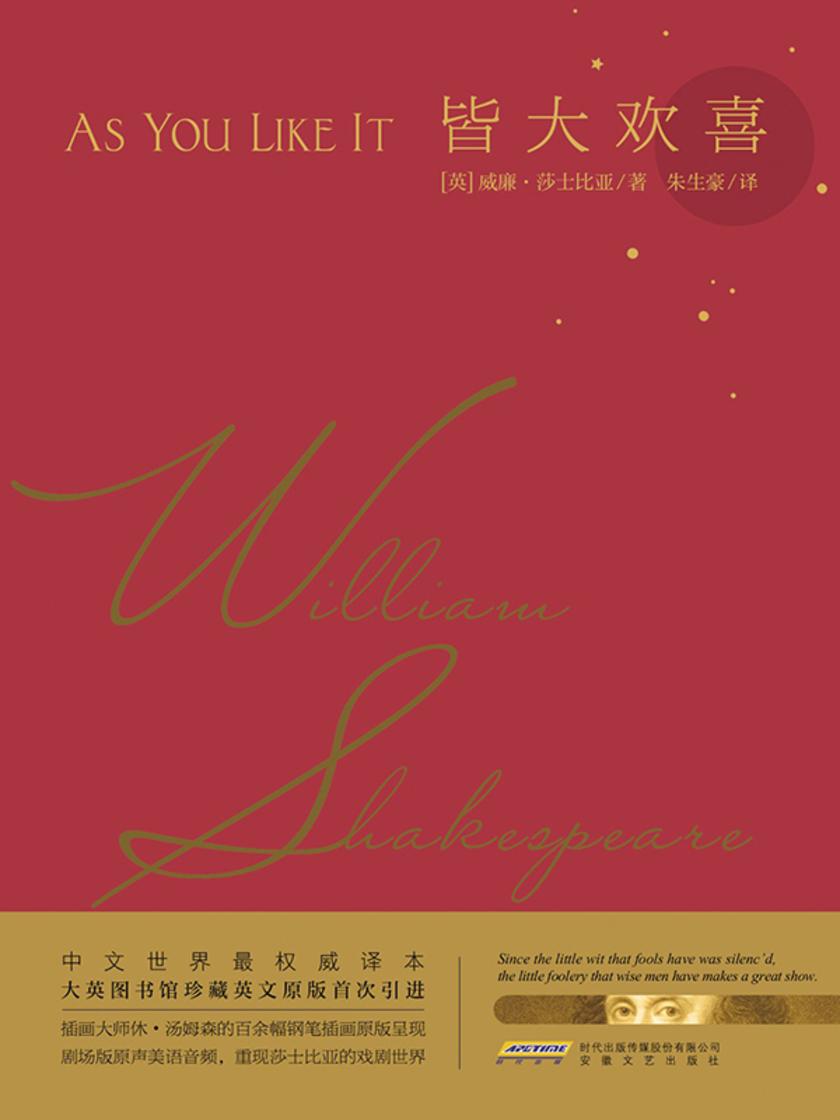
莎士比亚戏剧典藏:皆大欢喜
¥12.99
弗莱德里克不顾兄弟情谊,篡夺同胞兄弟的公爵头衔,把公爵赶走,使他被迫流亡在森林里。不久公爵的女儿罗瑟琳也被驱逐到森林,遇到了受兄长奥列佛虐待的奥兰多,两人相爱。奥兰多宽恕了奥列佛,使奥列佛悔过,并与罗瑟琳的堂妹西莉娅产生了爱情。他们一起生活在森林里,罗瑟琳终于在森林里找到了父亲,弗莱德里克受隐士拨,对自己的行为十分懊悔,将权位归还给了胞兄,奥兰多与罗瑟琳、奥列佛与西莉娅、牧人西尔维斯与牧女菲必、小丑试金石与村姑奥德雷四对恋人喜结良缘,收获了大团圆的结局。
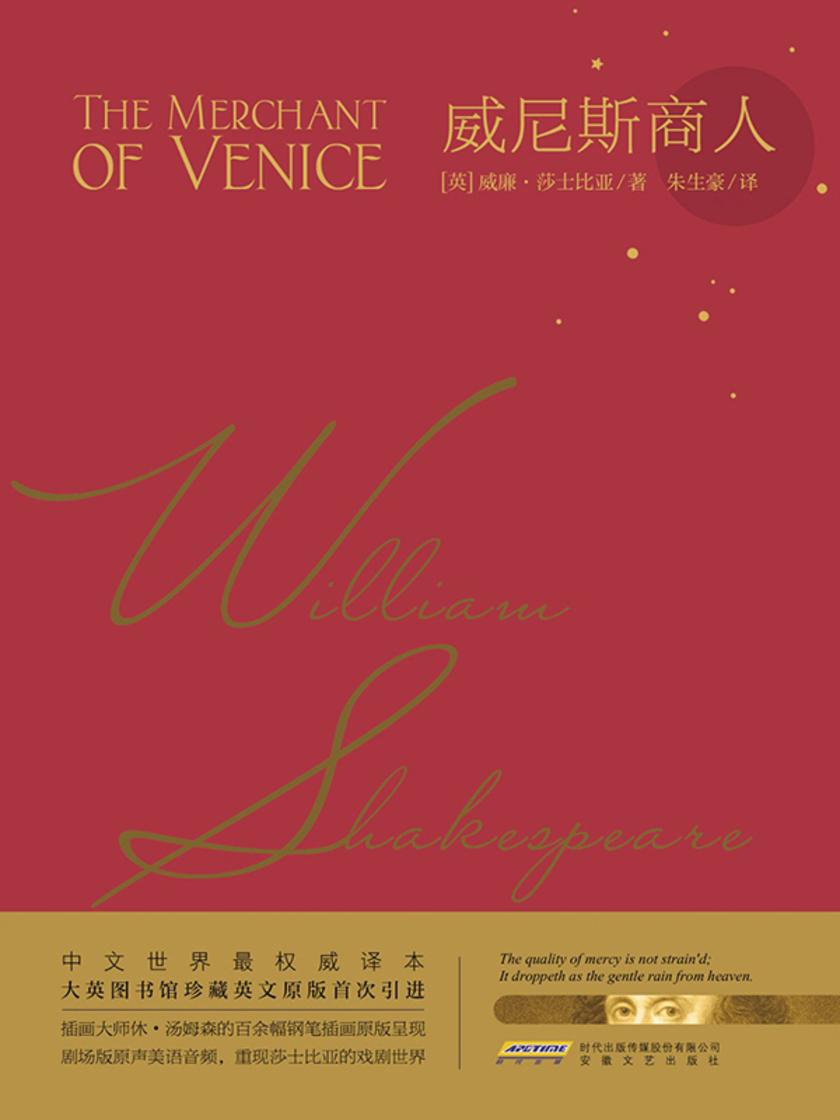
莎士比亚戏剧典藏:威尼斯商人
¥12.99
《威尼斯商人》 是莎士比亚早期的重要作品,是一部具有极大讽刺性的喜剧。主要讲述了威尼斯商人安东尼奥为了帮助好友巴萨尼奥成婚,向犹太人高利贷者夏洛克借了三千金币。夏洛克因为安东尼奥借给别人钱不要利息,影响了他的生意,又侮辱过他,所以借机报复,在借约上戏言三个月期满还不上钱,就从安东尼奥身上割下一磅肉抵债。安东尼奥因船失事,不能如期还钱,夏洛克就提起公诉,要安东尼奥履行借约。 为救安东尼奥的性命,巴萨尼奥的未婚妻鲍西亚假扮律师,利用智慧巧妙地让夏洛克无法执行割一磅肉而败诉,害人不成反而失去财产。
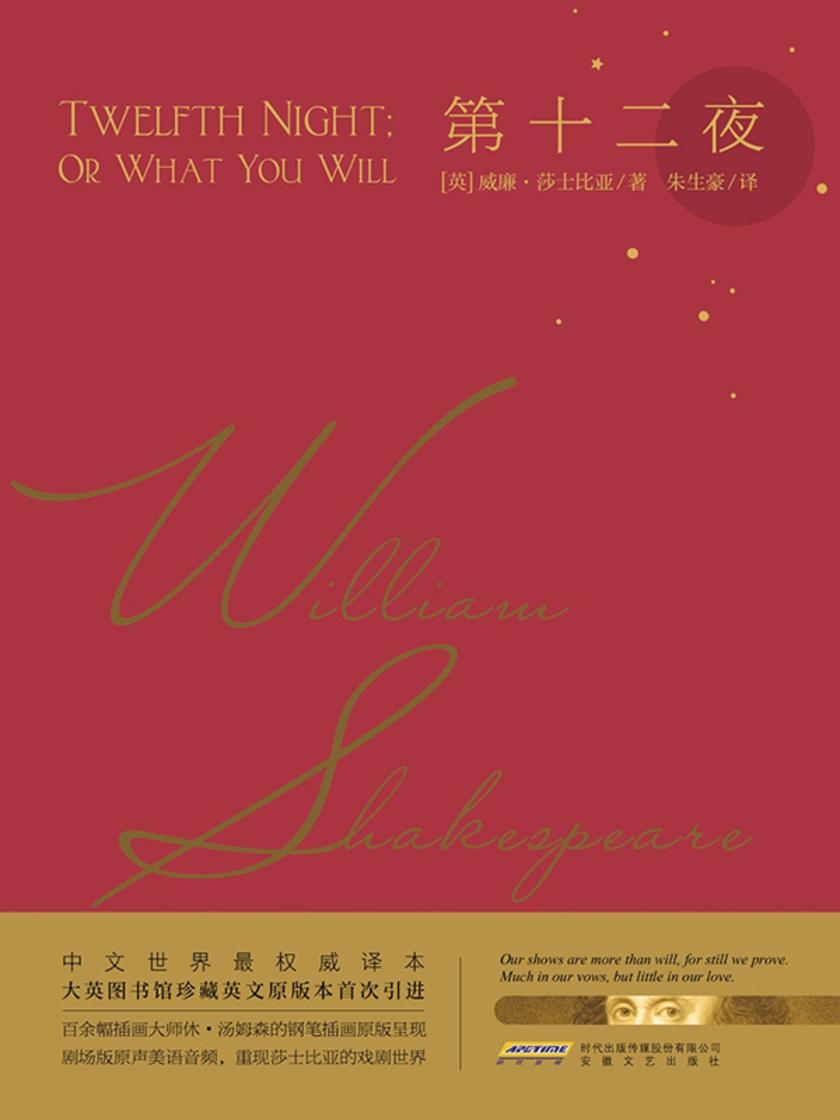
莎士比亚戏剧典藏:第十二夜
¥12.99
《第十二夜》由英国剧作家威廉•莎士比亚创作,以抒情的笔调、浪漫喜剧的形式,讴歌了人文主义对爱情和友谊的美好理想。戏剧讲述了塞巴斯蒂安和薇奥拉这一对孪生兄妹,在一次海上航行途中不幸遇难后各自侥幸脱险,流落到伊利里亚后发生的一番有趣的波折。*终,薇奥拉与奥西诺、奥丽维娅与西巴斯辛双双结成良缘。
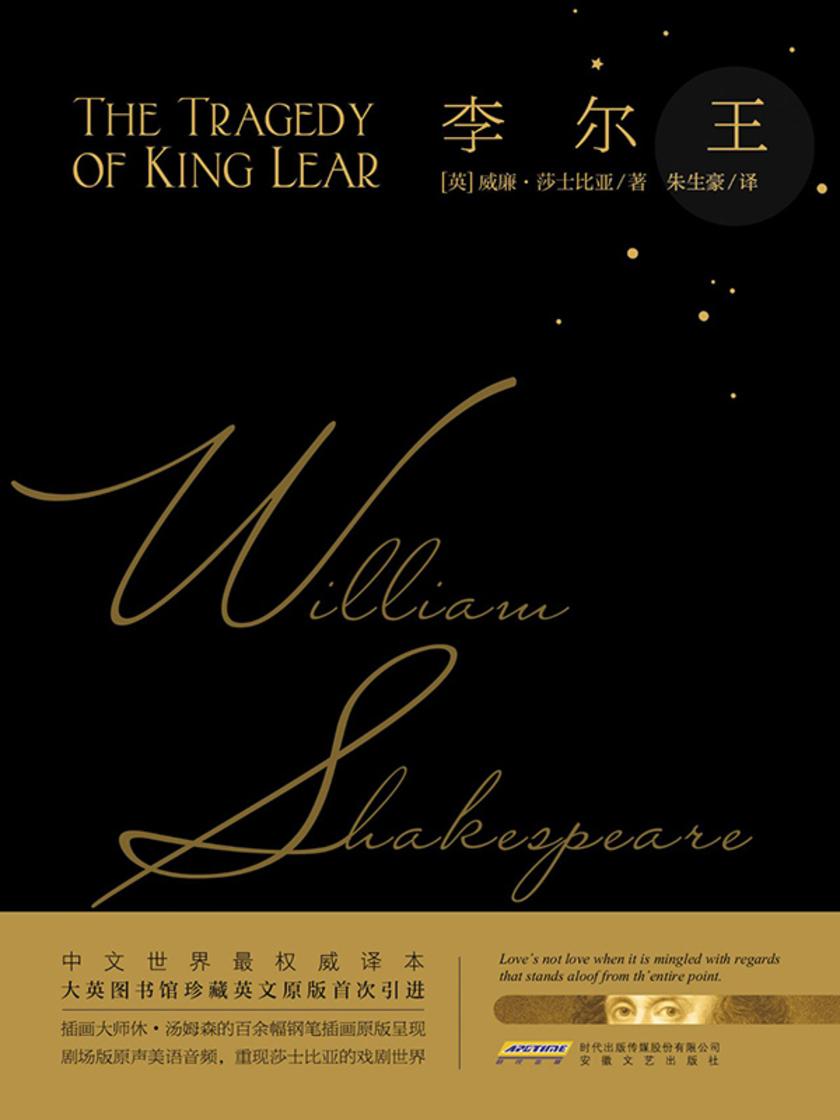
莎士比亚戏剧典藏:李尔王
¥12.99
李尔王年老之际,算把国家分给三个女儿。为了满足虚荣心,他让女儿们表达如何爱戴他的。大女儿和二女儿刻意讨好,只有三女儿朴实而真诚地表达了感情,却遭到李尔王的误解而被驱逐出宫。然而得到王国后,两个女儿态度大变,把李尔王和随从葛罗斯特赶出宫。李尔王伤心的时候遇到了一个圣徒并向她倾诉了对小女儿的歉意和想念,不想圣徒正是小女儿,她早已原谅了父亲。葛罗斯特之前听信了小儿子爱德蒙的谗言,赶走了大儿子爱德伽。为了得到王位,爱德蒙不惜陷害自己的父亲和哥哥。与此同时,李尔王的大女儿和小女儿都爱上了为了得到王位陷害父亲与哥哥的爱德蒙。*终,李尔王等人被抓,爱德蒙发布秘密处死的口令。爱德伽与爱德蒙决斗并杀死了埃德蒙。而高纳里尔与里根也已经死去。李尔王崩溃了......
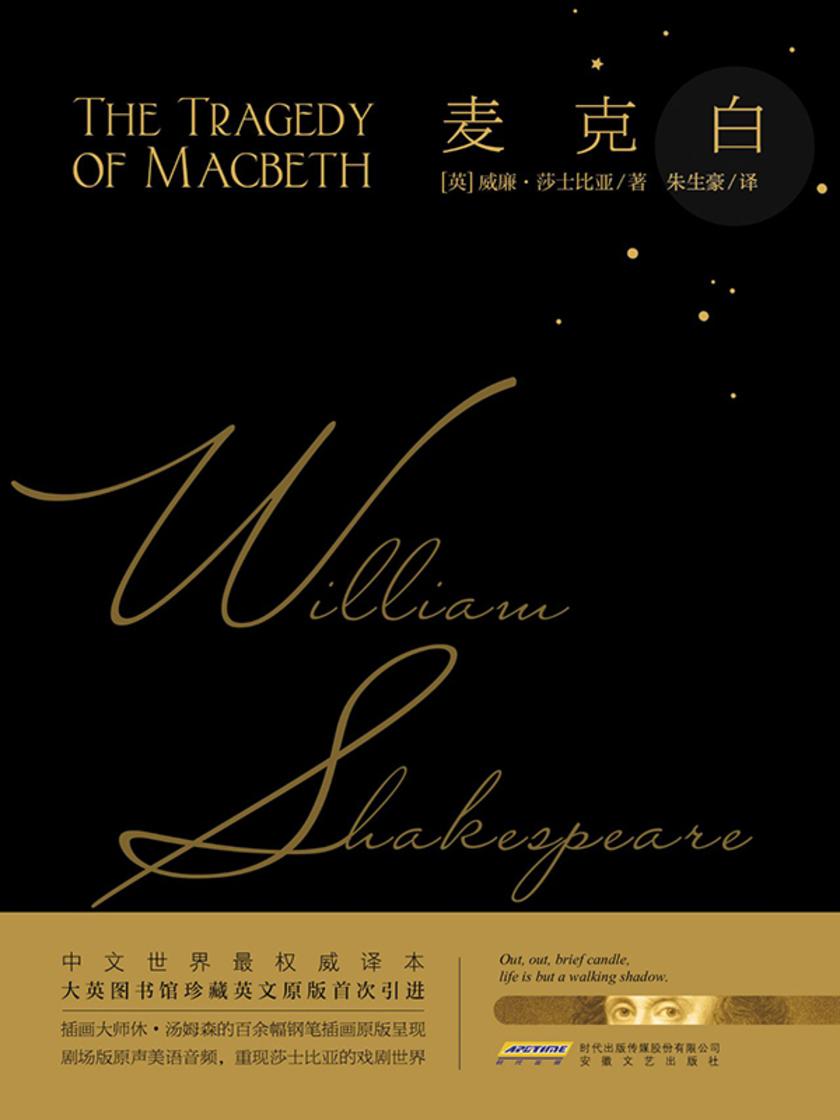
莎士比亚戏剧典藏:麦克白
¥12.99
《麦克白》由英国剧作家威廉•莎士比亚创作,根据古英格兰史学家拉斐尔•霍林献特的《苏格兰编年史》中的古老故事改编而成。戏剧讲述了利欲熏心的国王和贪婪的王后被推翻的过程。《麦克白》同《哈姆雷特》《奥赛罗》《李尔王》被公认为莎士比亚的“四大悲剧”。
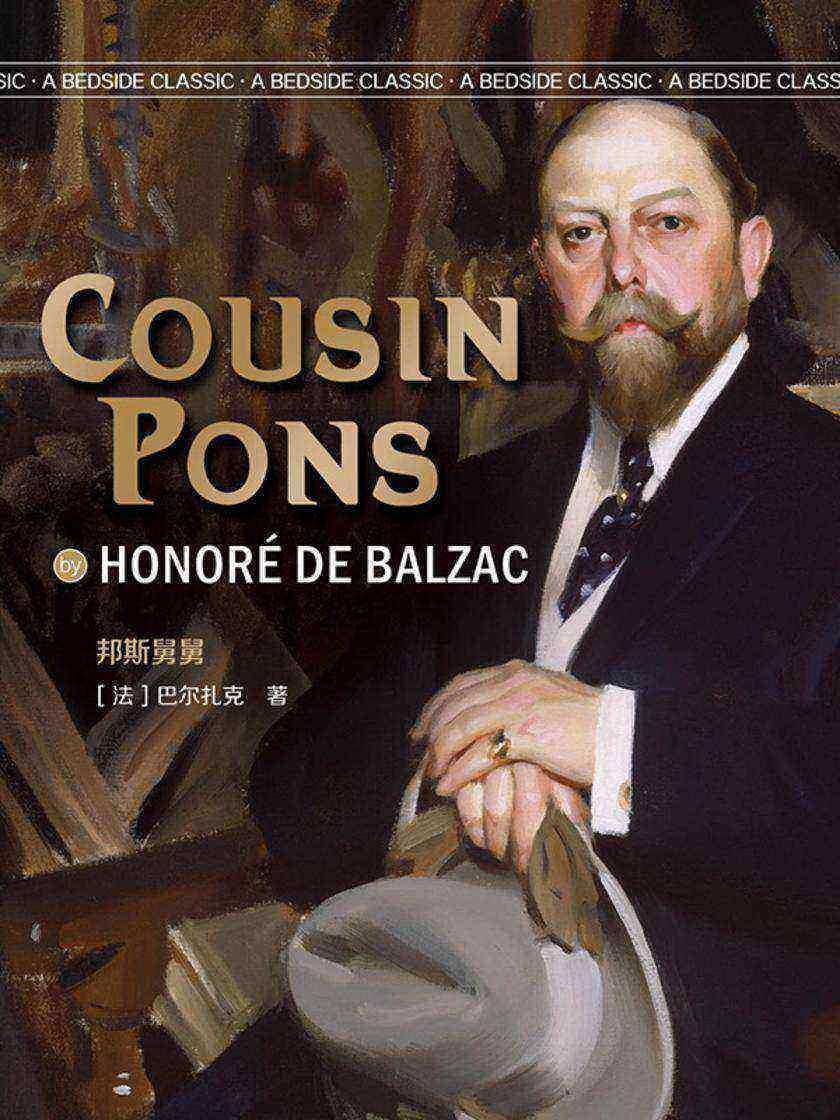
邦斯舅舅(英语文库)
¥12.99
本书作为我社“经典英语文库”第15辑中的一种,精选由英法国著名作家巴尔扎克的经典作品《邦斯舅舅》。作品讲述了邦斯舅舅——一个诚实而高尚的音乐家,具有很高的艺术品位,为了丰富自己的藏画,他不惜付出一切。当人们不知道他家中有这些宝藏时,谁也不把他放在心上。当人们获悉这些名画的价值时,以庭长太太为首的上流社会的人们便千方百计地谋取他的财富的故事。
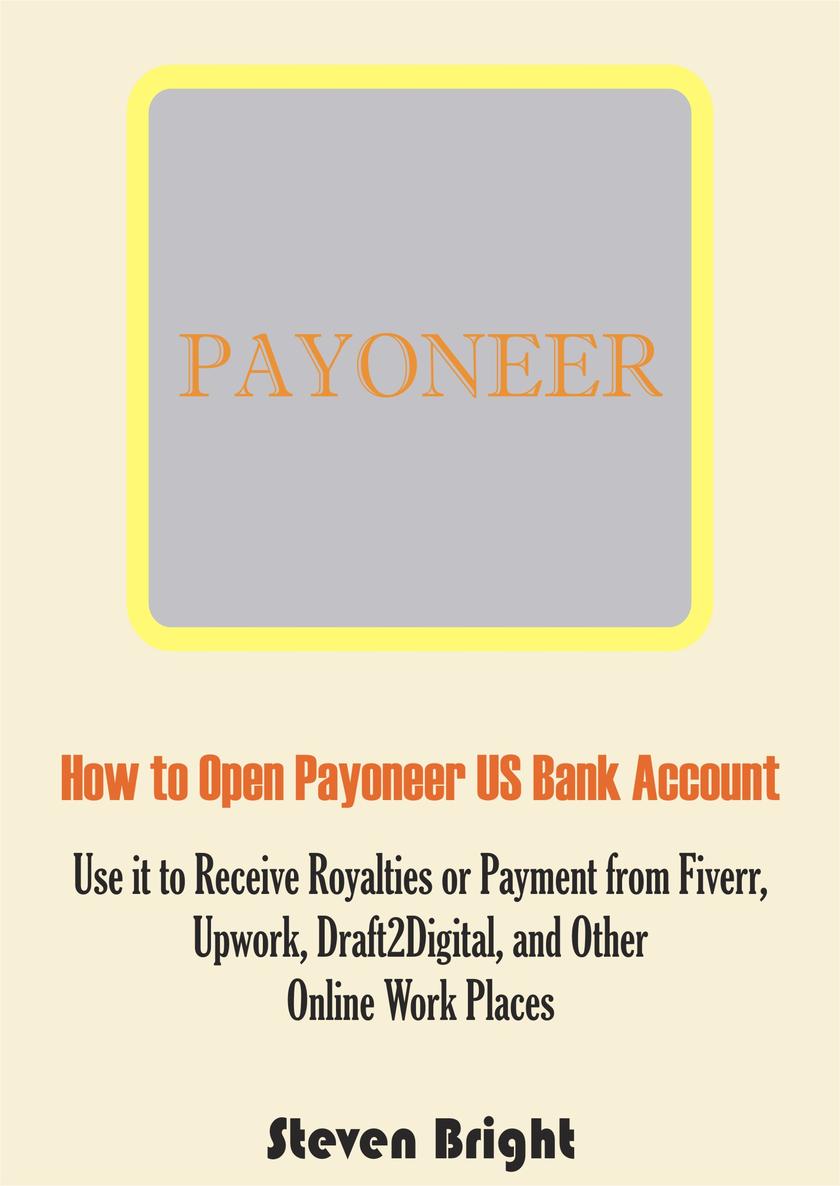
How to Open Payoneer US Bank Account
¥13.90
How to Open Payoneer US Bank Account
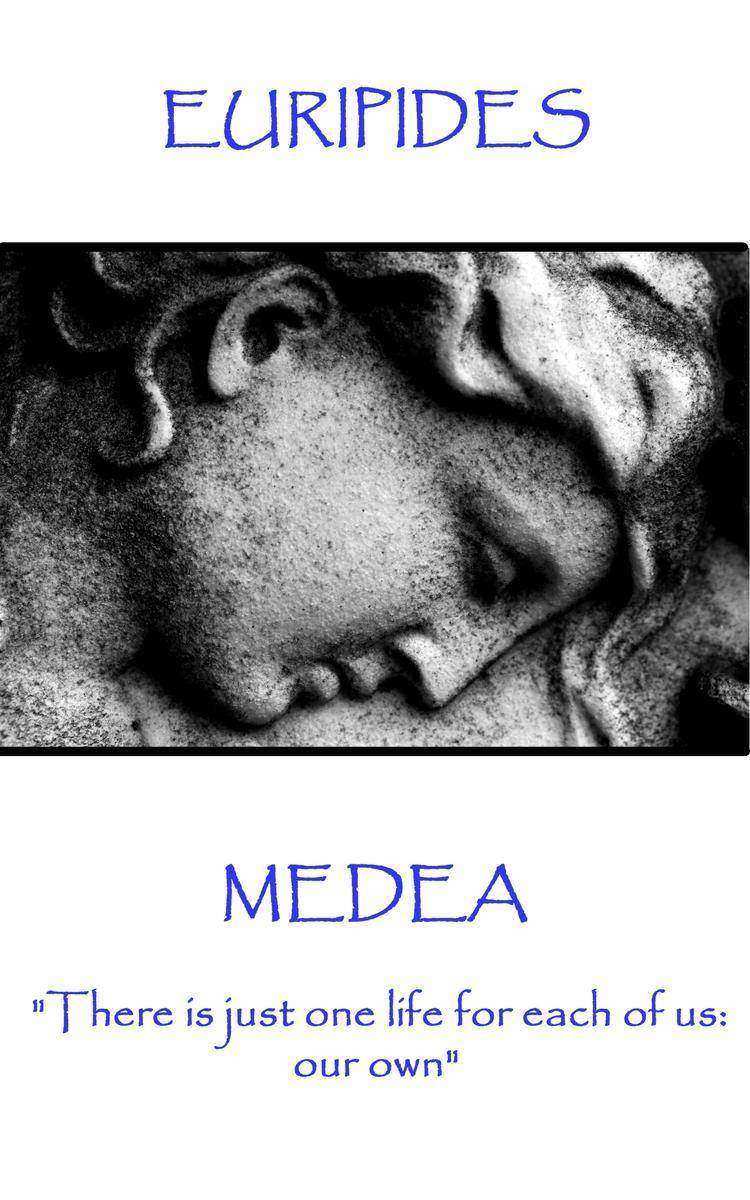
Medea - There is just one life for each of us: our own
¥14.03
Euripides is rightly lauded as one of the great dramatists of all time. In his lifetime, he wrote over 90 plays and although only 18 have survived they reveal the scope and reach of his genius. Euripides is identified with many theatrical innovations that have influenced drama all the way down to modern times, especially in the representation of traditional, mythical heroes as ordinary people in extraordinary circumstances. As would be expected from a life lived 2,500 years ago, details of it are few and far between. Accounts of his life, written down the ages, do exist but whether much is reliable or surmised is open to debate. Most accounts agree that he was born on Salamis Island around 480 BC, to mother Cleito and father Mnesarchus, a retailer who lived in a village near Athens. Upon the receipt of an oracle saying that his son was fated to win "e;crowns of victory"e;, Mnesarchus insisted that the boy should train for a career in athletics. However, what is clear is that athletics was not to be the way to win crowns of victory. Euripides had been lucky enough to have been born in the era as the other two masters of Greek Tragedy; Sophocles and schylus. It was in their footsteps that he was destined to follow. His first play was performed some thirteen years after the first of Socrates plays and a mere three years after schylus had written his classic The Oristria. Theatre was becoming a very important part of the Greek culture. The Dionysia, held annually, was the most important festival of theatre and second only to the fore-runner of the Olympic games, the Panathenia, held every four years, in appeal. Euripides first competed in the City Dionysia, in 455 BC, one year after the death of schylus, and, incredibly, it was not until 441 BC that he won first prize. His final competition in Athens was in 408 BC. The Bacchae and Iphigenia in Aulis were performed after his death in 405 BC and first prize was awarded posthumously. Altogether his plays won first prize only five times. Euripides was also a great lyric poet. In Medea, for example, he composed for his city, Athens, "e;the noblest of her songs of praise"e;. His lyric skills however are not just confined to individual poems: "e;A play of Euripides is a musical whole....one song echoes motifs from the preceding song, while introducing new ones."e; Much of his life and his whole career coincided with the struggle between Athens and Sparta for hegemony in Greece but he didn't live to see the final defeat of his city. Euripides fell out of favour with his fellow Athenian citizens and retired to the court of Archelaus, king of Macedon, who treated him with consideration and affection. At his death, in around 406BC, he was mourned by the king, who, refusing the request of the Athenians that his remains be carried back to the Greek city, buried him with much splendor within his own dominions. His tomb was placed at the confluence of two streams, near Arethusa in Macedonia, and a cenotaph was built to his memory on the road from Athens towards the Piraeus.
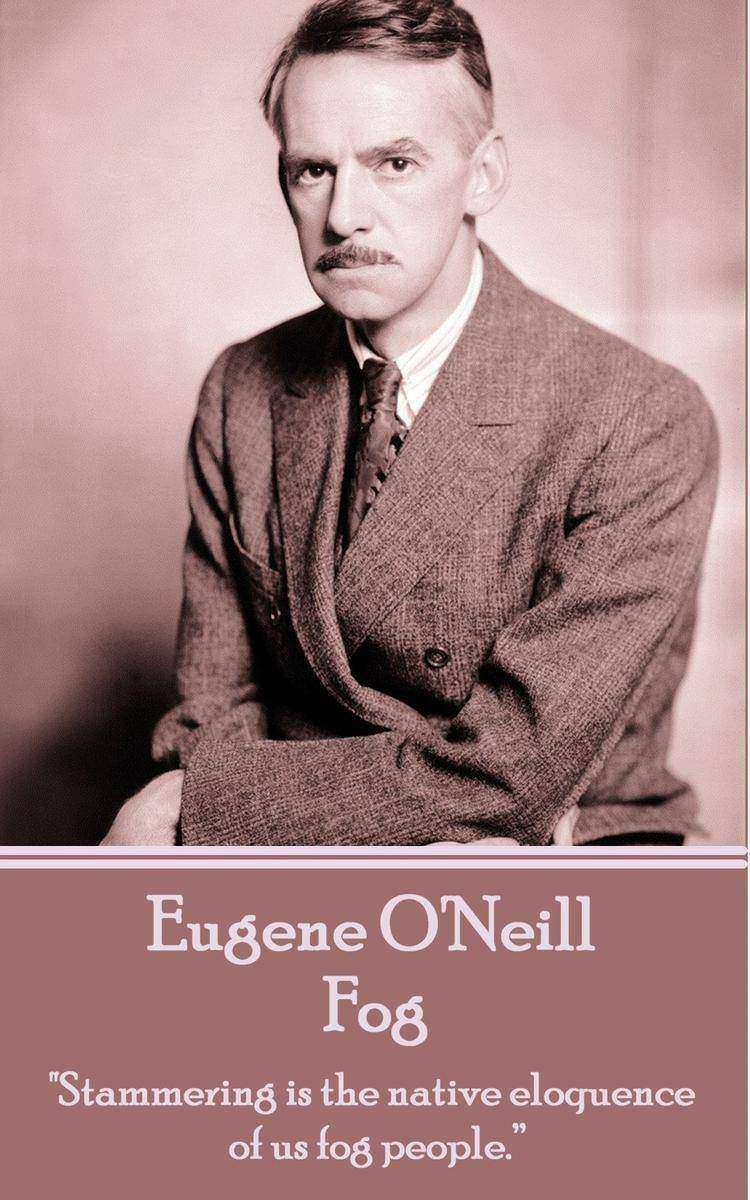
Fog - Stammering is the native eloquence of us fog people.
¥14.03
Eugene Gladstone O'Neill was born on October 16, 1888 in a hotel bedroom in what is now Times Square, New York. Much of his childhood was spent in the comfort of books at boarding schools whilst his actor father was on the road and his Mother contended with her own demons. He spent only a year at University - Princeton - and various reasons have been given for his departure. However whatever his background and education denied or added to his development it is agreed amongst all that he was a playwright of the first rank and possibly America's greatest. His introduction of realism into American drama was instrumental in its development and paved a path for many talents thereafter. Of course his winning of both the Pulitzer Prize (4 times) and the Nobel Prize are indicative of his status. His more famous and later works do side with the disillusionment and personal tragedy of those on the fringes of society but continue to build upon ideas and structures he incorporated in his early one act plays. Eugene O'Neill suffered from various health problems, mainly depression and alcoholism. In the last decade he also faced a Parkinson's like tremor in his hands which made writing increasingly difficult. But out of such difficulties came plays of the calibre of The Iceman Cometh, Long Day's Journey Into Night, and A Moon for the Misbegotten. Eugene O'Neill died in Room 401 of the Sheraton Hotel on Bay State Road in Boston, on November 27, 1953, at the age of 65. As he was dying, he whispered his last words: "e;I knew it. I knew it. Born in a hotel room and died in a hotel room."e;
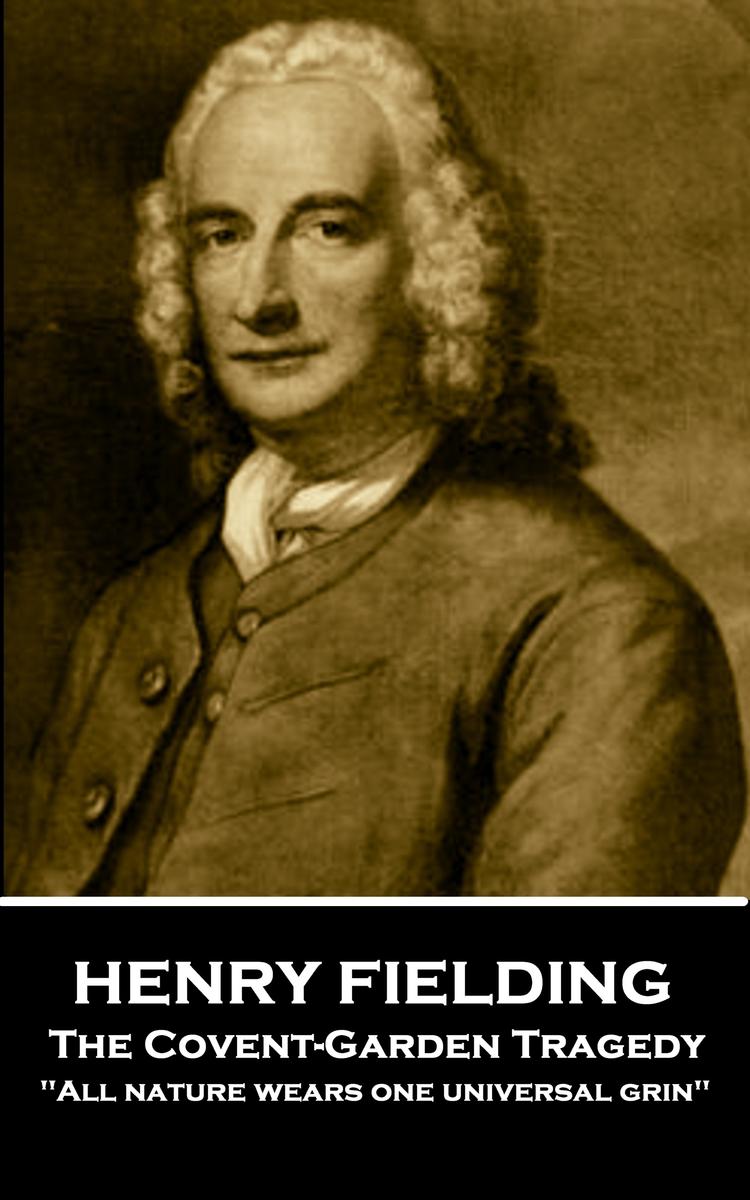
Covent-Garden Tragedy - All nature wears one universal grin
¥14.03
Henry Fielding was born at Sharpham Park, near Glastonbury, in Somerset on April 22nd 1707. His early years were spent on his parents' farm in Dorset before being educated at Eton.An early romance ended disastrously and with it his removal to London and the beginnings of a glittering literary career; he published his first play, at age 21, in 1728.He was prolific, sometimes writing six plays a year, but he did like to poke fun at the authorities. His plays were thought to be the final straw for the authorities in their attempts to bring in a new law. In 1737 The Theatrical Licensing Act was passed. At a stroke political satire was almost impossible. Fielding was rendered mute. Any playwright who was viewed with suspicion by the Government now found an audience difficult to find and therefore Theatre owners now toed the Government line.Fielding was practical with the circumstances and ironically stopped writing to once again take up his career in the practice of law and became a barrister after studying at Middle Temple. By this time he had married Charlotte Craddock, his first wife, and they would go on to have five children. Charlotte died in 1744 but was immortalised as the heroine in both Tom Jones and Amelia.Fielding was put out by the success of Samuel Richardson's Pamela, or Virtue Rewarded. His reaction was to spur him into writing a novel. In 1741 his first novel was published; the successful Shamela, an anonymous parody of Richardson's novel.Undoubtedly the masterpiece of Fielding's career was the novel Tom Jones, published in 1749. It is a wonderfully and carefully constructed picaresque novel following the convoluted and hilarious tale of how a foundling came into a fortune.Fielding was a consistent anti-Jacobite and a keen supporter of the Church of England. This led to him now being richly rewarded with the position of London's Chief Magistrate. Fielding continued to write and his career both literary and professional continued to climb.In 1749 he joined with his younger half-brother John, to help found what was the nascent forerunner to a London police force, the Bow Street Runners. Fielding's ardent commitment to the cause of justice in the 1750s unfortunately coincided with a rapid deterioration in his health. Such was his decline that in the summer of 1754 he travelled, with Mary and his daughter, to Portugal in search of a cure. Gout, asthma, dropsy and other afflictions forced him to use crutches. His health continued to fail alarmingly.Henry Fielding died in Lisbon two months later on October 8th, 1754.
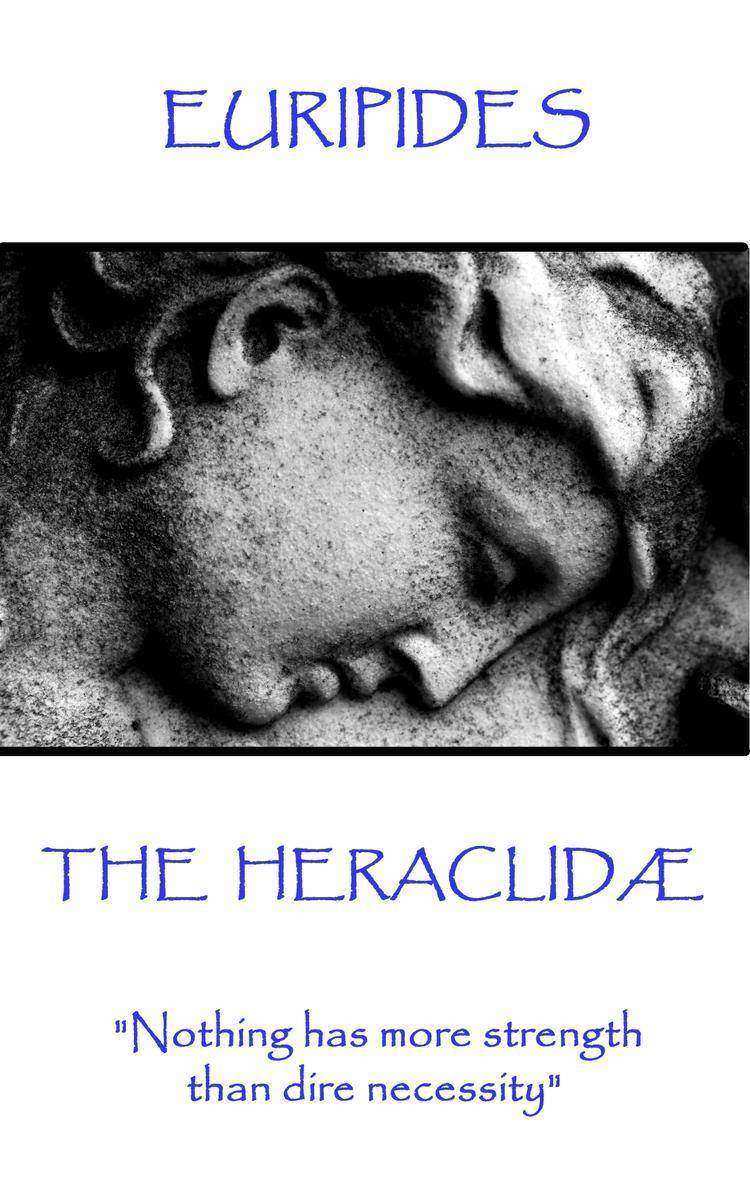
Heraclidae - Nothing has more strength than dire necessity
¥14.03
Euripides is rightly lauded as one of the great dramatists of all time. In his lifetime, he wrote over 90 plays and although only 18 have survived they reveal the scope and reach of his genius. Euripides is identified with many theatrical innovations that have influenced drama all the way down to modern times, especially in the representation of traditional, mythical heroes as ordinary people in extraordinary circumstances. As would be expected from a life lived 2,500 years ago, details of it are few and far between. Accounts of his life, written down the ages, do exist but whether much is reliable or surmised is open to debate. Most accounts agree that he was born on Salamis Island around 480 BC, to mother Cleito and father Mnesarchus, a retailer who lived in a village near Athens. Upon the receipt of an oracle saying that his son was fated to win "e;crowns of victory"e;, Mnesarchus insisted that the boy should train for a career in athletics. However, what is clear is that athletics was not to be the way to win crowns of victory. Euripides had been lucky enough to have been born in the era as the other two masters of Greek Tragedy; Sophocles and schylus. It was in their footsteps that he was destined to follow. His first play was performed some thirteen years after the first of Socrates plays and a mere three years after schylus had written his classic The Oristria. Theatre was becoming a very important part of the Greek culture. The Dionysia, held annually, was the most important festival of theatre and second only to the fore-runner of the Olympic games, the Panathenia, held every four years, in appeal. Euripides first competed in the City Dionysia, in 455 BC, one year after the death of schylus, and, incredibly, it was not until 441 BC that he won first prize. His final competition in Athens was in 408 BC. The Bacchae and Iphigenia in Aulis were performed after his death in 405 BC and first prize was awarded posthumously. Altogether his plays won first prize only five times. Euripides was also a great lyric poet. In Medea, for example, he composed for his city, Athens, "e;the noblest of her songs of praise"e;. His lyric skills however are not just confined to individual poems: "e;A play of Euripides is a musical whole....one song echoes motifs from the preceding song, while introducing new ones."e; Much of his life and his whole career coincided with the struggle between Athens and Sparta for hegemony in Greece but he didn't live to see the final defeat of his city. Euripides fell out of favour with his fellow Athenian citizens and retired to the court of Archelaus, king of Macedon, who treated him with consideration and affection. At his death, in around 406BC, he was mourned by the king, who, refusing the request of the Athenians that his remains be carried back to the Greek city, buried him with much splendor within his own dominions. His tomb was placed at the confluence of two streams, near Arethusa in Macedonia, and a cenotaph was built to his memory on the road from Athens towards the Piraeus.




 购物车
购物车 个人中心
个人中心



